
Build agency, responsibility, community, and creativity
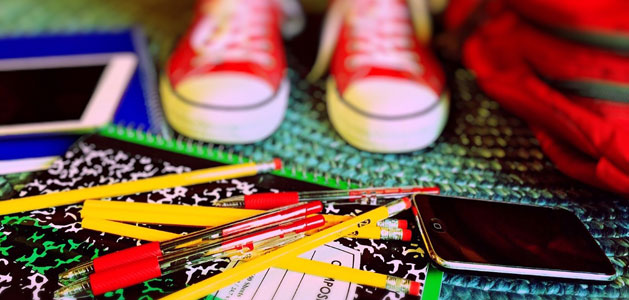
Back to school involves a lot of get-to-know-you activities, which are essential to developing the relationships necessary for classroom success. Giving students more agency and control over the content and process of these activities asks them to immediately take on responsibility for their own learning and provides opportunities to practice agency.
Start the year off strong with activities that involve learners in creating, as well as provide opportunities for agency and decision-making.
Teaching students how to set goals leads them to believe in themselves (confidence) and their own power to take actions that influence their lives (agency); providing a perfect activity to kick off the year.
While writing down your goals actually makes it more likely you will achieve them, a simple list is not enough. You can support student efforts by teaching them how to write SMART goals. SMART goals are:
Once students have written their goals, make sure they get printed out so students have a visual reminder of the steps needed to accomplish them.
Goals work best when they are coupled with accountability. Have students present their goals and then work with a partner(s) to support them as they take the necessary steps toward achieving their goals.
Explore a complete SMART Goals lesson
A vision board is a collage of images, words, and short phrases that help your brain visualize success and provide motivation to do the necessary work. Creating a vision board assumes students have already identified a goal and maybe even crafted a SMART goal statement.
Ask students to close their eyes and imagine reaching their goal. What does that look and feel like? Students should write down what they see and then collect images that match or reflect this visualization.
To create a collage, students can find print versions or print digital images they have collected, cut them out, and then attach them to a poster or board. Students can also use a digital imaging tool like Wixie to layer and design their vision board.
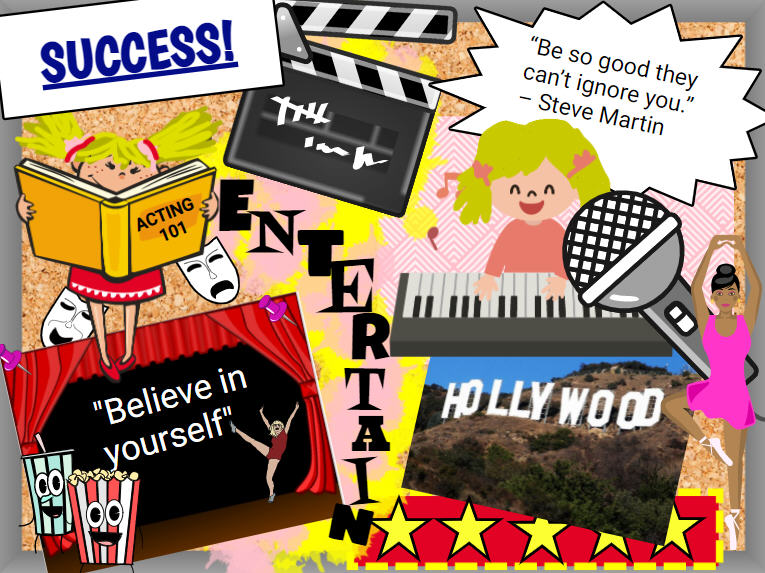
Unlike the benefits of sharing your goals publicly, vision boards are personal. Print copies of each student's board and direct them to put them somewhere that they will see everyday.
Remind students that they don't need to take a vision board down once they achieve a goal. Looking at their vision board after goals have been achieved helps students acknowledge the progress they have made.
Explore a complete Vision Board Design lesson
If we want students to take responsibility for learning, we need to include them in decision-making and enable their agency. Creating a classroom constitution is a great way to get them thinking, collaborating, and taking action to impact their world.
Writing a constitution together makes them part of the process of government and gives them a vested interest and responsibility in following and upholding the laws they have determined.
Constitution Day is September 17th, so that even gives you enough time to establish routines and have energy levels recede from back-to-school jitters. Explore the Constitution together, including the preamble, articles, and amendments that protect the rights of all US citizens.
If you, and your students, find the ideas of writing a constitution daunting, use the preamble as a model. For example:
"We the students of _____ class, in Order to form a more perfect Union, establish _____ , insure _____, provide for ______, promote ______, and secure _____, do ordain and establish this Constitution for our classroom."
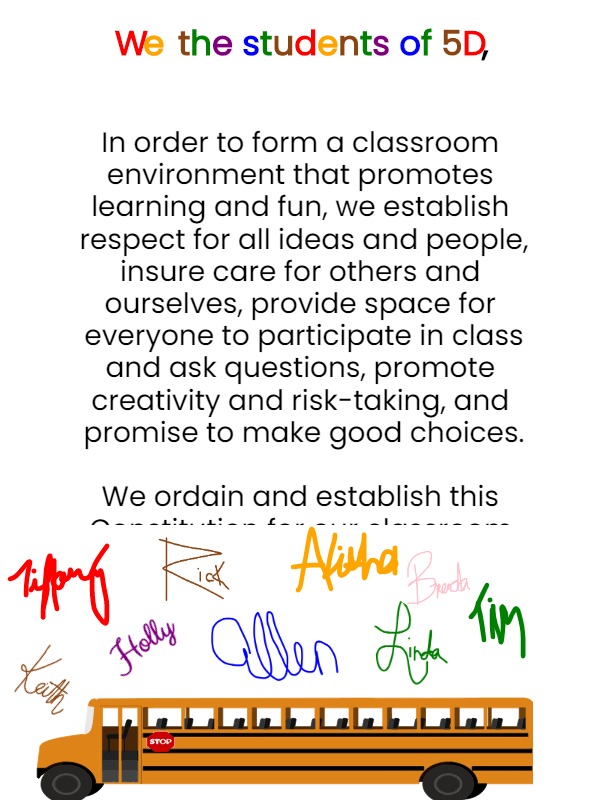
Print the final constitution in large format or create a version using poster or chart paper so you can post it in the classroom for everyone to see. Make time for a formal reading of the preamble and articles. Have each student come to the add their signature to "ratify" your classroom constitution.
Explore a complete Classroom Constitution lesson
Classroom learning blooms when students feel welcome and celebrated. Celebrate your students' unique identities and experiences by asking them to design a flag to represent themselves or their families.
Have students begin by identifying things they feel represent themselves or their families. Share examples of traditions, objects and symbols that represent your family and explain why.
Have students design their flag using a digital imaging tool like Wixie so they can quickly and easily combine clip art, photographs, and their own artwork.
Print each student's flag and have them present their design to the class, explaining how the symbols and colors represent things about their family and the things that are important to it. Create a gallery in your classroom to showcase student flags at back-to-school night to highlight and celebrate all the different ways families are unique.
Explore a complete Family Flag lesson
Because we experience the world through the five senses, writers use them to add details that make a scene come alive for a reader. Ask students to write a 5 senses poem describing themselves or school.
You can scaffold their poem with I am, I see, I smell, etc. statements.
Download a printable 5 Senses Poem starter
While writing on the computer may seem time consuming, it provides students with an opportunity to record their voice using the microphone or camera for fluency practice and additional customization.
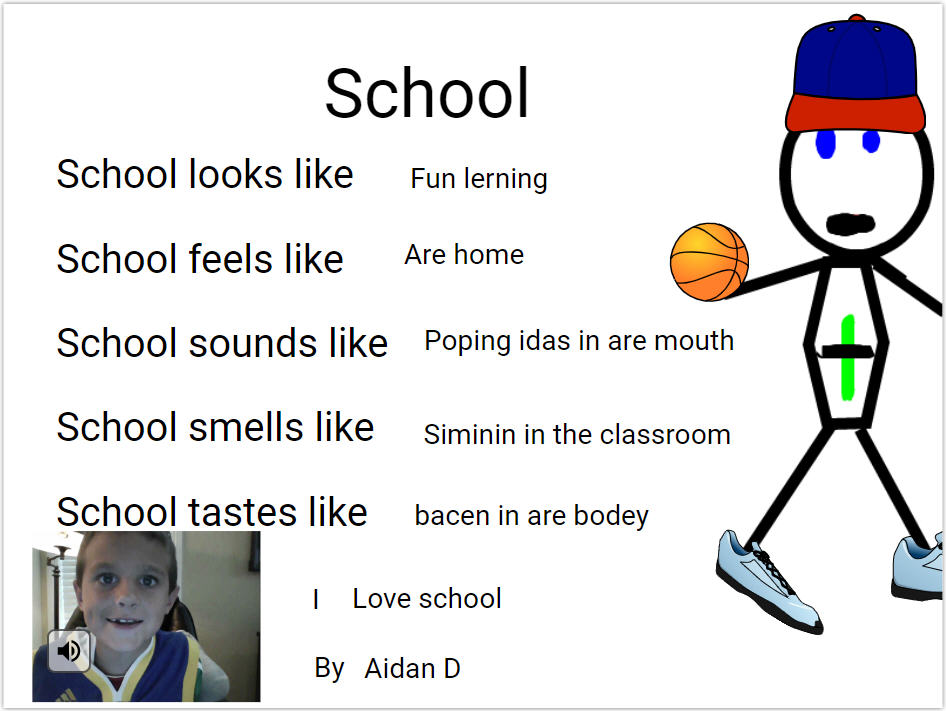
Print each student's poem to display in your classroom. If students have recorded themselves using audio or video reading their poems, showcase them for the entire class or during back-to-school night.
Explore a complete 5 Senses Poetry lesson
If you are willing to have a class pet in your classroom, consider asking students to help you choose which pet to get. Many teachers wait to teach persuasive or argument writing later in the year, but this is great way to set high expectations for thinking and student work.
Ask your students what they think will happen if they just say, "I want a puppy!" or all say different animals. How will you decide? Try to connect the idea of wanting to the idea of convincing, using words like "reason" and "because."
Students will generally have a specific animal in mind right away, so you can jump into having them support that opinion with an O-R-E-O organizer.
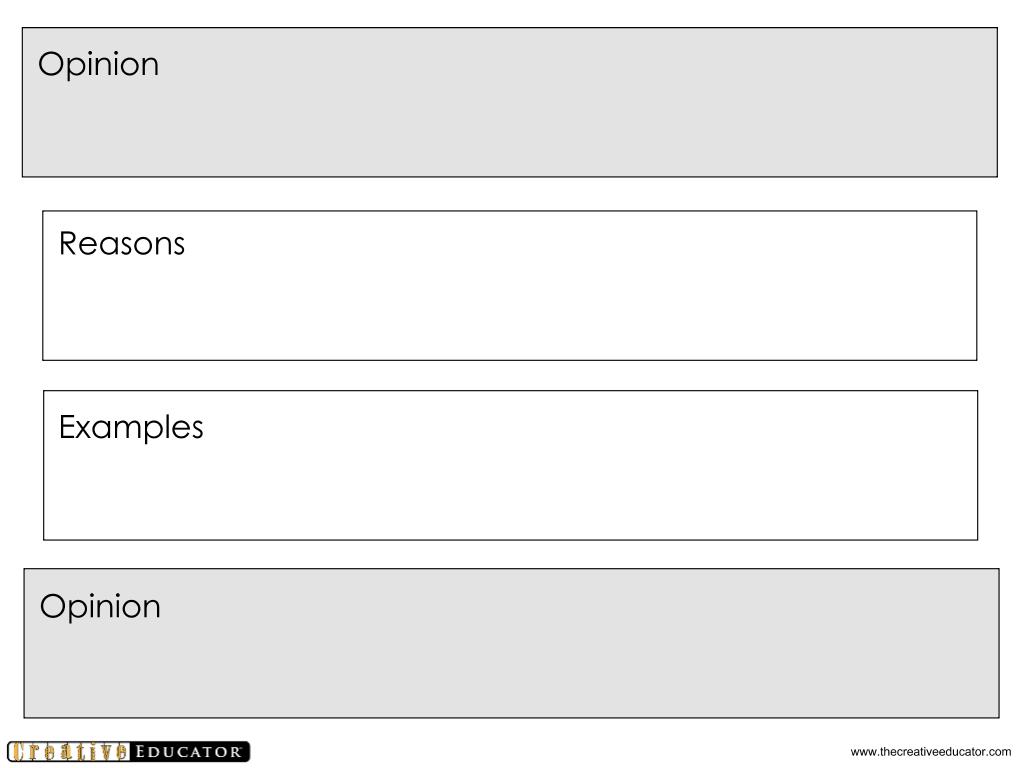
Download a printable 5 Senses Poem starter
After students learn more about the pet, ask them to write a letter to convince you to get this new pet.
Have students share their opinions orally or read all the letters together and vote on which pet would be best for the classroom.
Explore a complete Persuade for a Pet lesson
Students love superheroes. You can likely also draw on their experiences with recent movies and shows to both engage them and prompt their thinking.
Ask students to share some of their favorite superheroes. Create a list of superheroes and then add a second column to list their powers and maybe even the tools they use.
Talk to students about the difference between a celebrity and a hero. Use a cluster organizer to help students get started identifying the traits of their hero.
Have students look at the traits and design a classroom superhero, choosing powers that support learning. Have them share a story, written or verbal, about how the hero could use these powers to make their classroom better.
Explore a complete Design a Superhero lesson
In Five Creatures, Emily Jenkins describes a family of five (two cats and three people) by comparing things they have in common and things they do not. For example,
"Five creatures live in our house. Three with orange hair, and two with gray. Two with long hair, three with short."
Ask individual students to create their own data story about their family. First, they need to define the creatures (humans and pets) in their family. Then, identify traits they have in common and compare. Write a sentence for each trait and illustration to help the reader. This ia a great way to introduce students to data visualization as well!
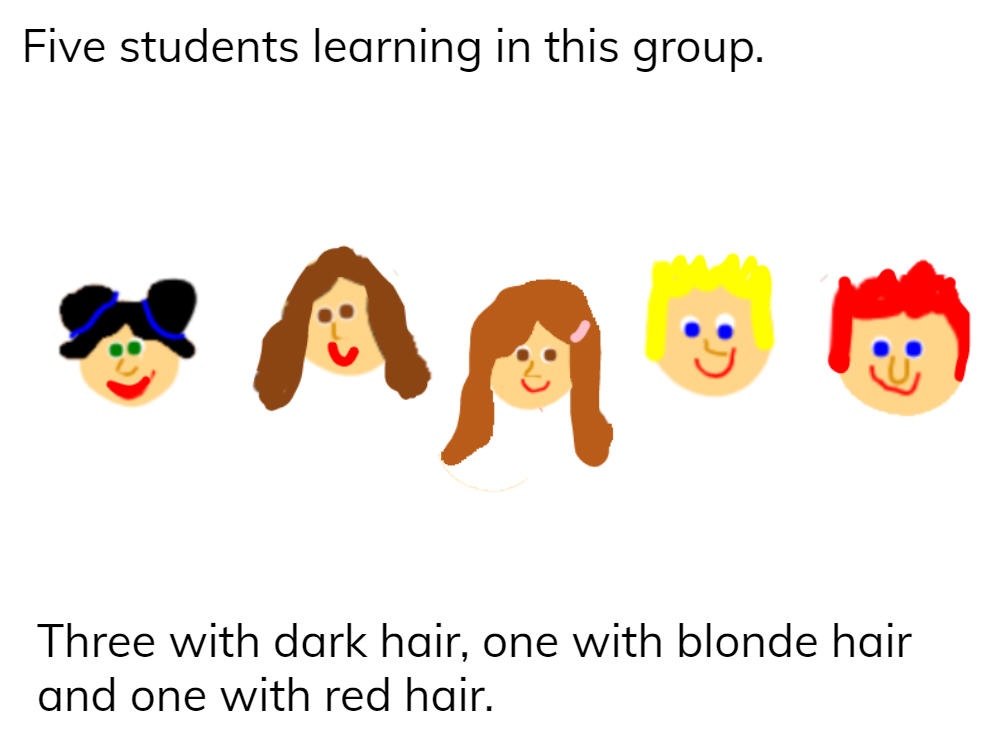
This also makes a great get-to-know-you project, encouraging collaboration and teamwork. Ask a small group or team to create a five-creatures-style project about the attributes of the members of their team. In doing so, they will inherently celebrate differences and find commonalities with one another.
Giuseppe Arcimboldo is an Italian Renaissance painter known for his portraits of people that use objects like fruit and books. For example, Arcimboldo's The Librarian is made from a collection of books, Vetumnus includes fruit and flowers, and Earth is made up of animals.
Use his paintings as inspiration for your students to create a composite self-portrait using objects like fruit, plants, and toys to symbolize their interests. You can cut out images from magazines to create a collage-style self-portrait.
Digital imaging tools make it easy to combine layered images without the mess of paper cuttings and glue. Some tools, like Wixie, have embedded image libraries that make it easy for students to find images to combine.
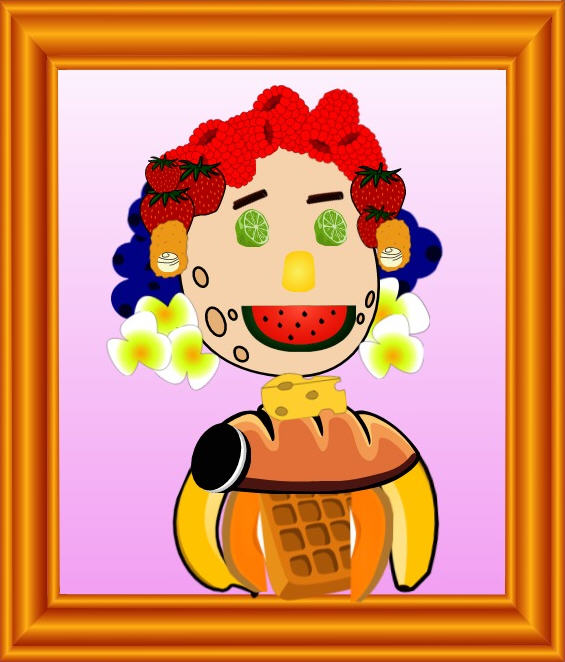
Print student's self-portraits for display in your classroom or around school. If more than one class creates self-portraits, do a showcase or meet and greet where students make inferences and educated guesses about a fellow student's interests to practice oral descriptions, spark conversation, make connections, and build community.
Explore a complete Arcimboldo-Style Self-Portraits lesson
At the beginning of each school year, students have a new teacher, a new classroom, and new routines to learn. But then after a few weeks, they have learned how to navigate the classroom and many processes have become second nature.
Once students are settled in, ask them to apply their knowledge of locations and rules to design a classroom tour for new students. Start by creating print resources for each area of the room.
Scaffold the process for emerging writers and ELLs with sentence starters to help them write about the location, as well as rules. For example:
"You can find the __________ (place) ________ (preposition) the __________ (location)."
"At the ___________ (location) you can _____________ (activity), but you should not ___________ (rule)."
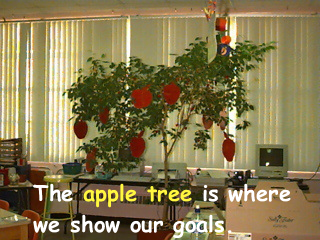
If you use a publishing tool like Wixie, you can have aides or older students help your learners record their voices too. This is especially helpful if you are going to combine student work and export as a video to showcase or share. Then, share the print or video versions with families as they visit during back-to-school night.
Creating a tour at the beginning of the year helps students remember locations and rules and provides a student-created resource you can share with new students joining your class later in the year.
Explore a complete Classroom Tour lesson
While worksheets make back-to-school activities easy to manage, they often result in projects that look very similar. Open-ended tasks and projects where students create on a blank page or use a broad scaffold helps them to immediately understand that important questions can have more than one right answer.
Creating is good, but involving students in decision-making and the design process helps transfer responsibility and gives them the agency they need to take action to impact their world and their future.

Follow us on Instagram for daily inspiration
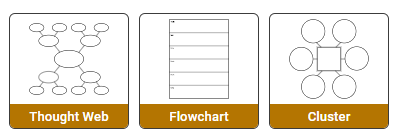
Create a thought web, cluster, flowchart, or other graphic organizer for a lesson
Five ideas for creative classroom centers
Creative, digital book reviews
Fun and powerful ideas with animated characters
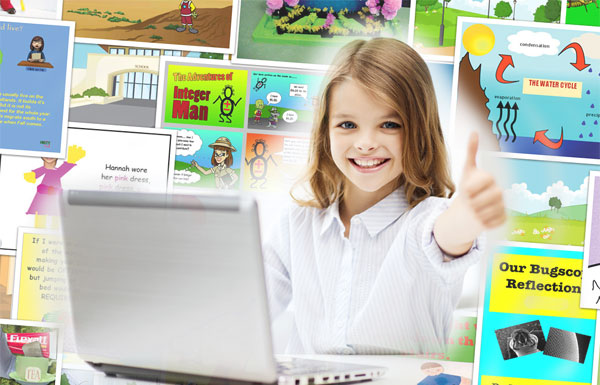
Wixie
Share your ideas, imagination, and understanding through writing, art, voice, and video.
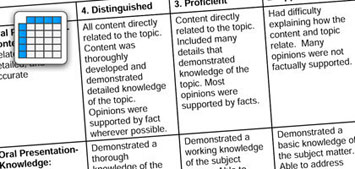
Rubric Maker
Create custom rubrics for your classroom.

Pics4Learning
A curated, copyright-friendly image library that is safe and free for education.
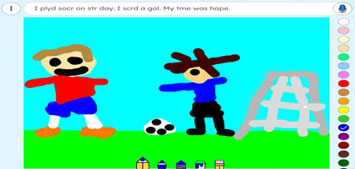
Wriddle
Write, record, and illustrate a sentence.

Get creative classroom ideas delivered straight to your inbox once a month.
Topics